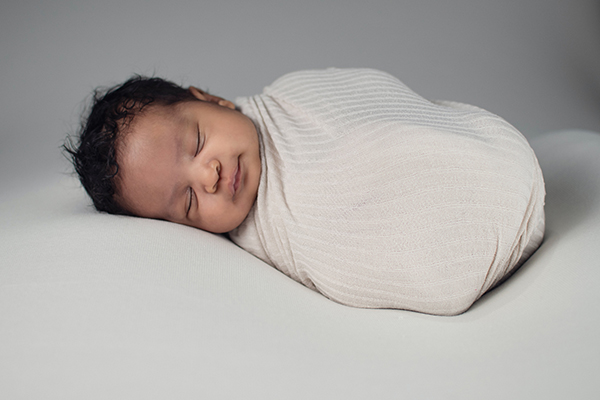by Michelle Terry
My 3- and 5-year-old sons are playing superheroes again. In the heat of battle against the “bad dudes,” my 3-year-old sustains an injury. Being a superhero is a dangerous line of work. Immediately, he’s tugging at my legging, tears streaming down his face, expecting words of comfort, hugs, and kisses. Of course, that is what he gets. My kisses still hold magic for him, and he’s off bringing down the powers of evil again in no time.
Part of me
My 10-month-old son is upset, probably a result of two teeth coming in at the same time. With a worried brow, he locks his eyes with mine and whines. As soon as he latches, he calms down and settles into a deep sleep. As he sleeps, my mind wanders back to when they were kicking and rolling around in my womb. I delighted in the memories of them when they were still physically a part of me. I found great joy in knowing they were growing from a few cells to the screaming, plump babies that greeted us on their birth days.
Their birth days did not come without some blood, sweat, and tears. My oldest son’s arrival was the worst of the three. The pain was disorienting and scary; I had never experienced anything remotely close. I will be forever grateful for the nurse on duty, who talked me through the contractions and helped me successfully birth my firstborn. I can still hear her voice, giving me direction and assuring me that everything would be fine.
Motherly depictions of God
Until recently, these experiences were just precious memories to me. Other memories like them are so routine they blur together. Yet, a few well-timed cues from the Holy Spirit put these memories in a new light.
 Each memory aligns with a description of God. A feminine description of God. God as a mother who comforts her child. “As a mother comforts her child, so will I comfort you; you shall be comforted in Jerusalem” (Isaiah 66:13). God as a nursing mother (Isaiah 49:15), and God’s children as newborn infants (1 Peter 2:2). God who is pregnant and gives birth (Isaiah 46:3-4, Deuteronomy 32:18, John 3:5). God as a woman in labor (Isaiah 42:14), and God as the midwife delivering a child (Psalm 22:8-10).
Each memory aligns with a description of God. A feminine description of God. God as a mother who comforts her child. “As a mother comforts her child, so will I comfort you; you shall be comforted in Jerusalem” (Isaiah 66:13). God as a nursing mother (Isaiah 49:15), and God’s children as newborn infants (1 Peter 2:2). God who is pregnant and gives birth (Isaiah 46:3-4, Deuteronomy 32:18, John 3:5). God as a woman in labor (Isaiah 42:14), and God as the midwife delivering a child (Psalm 22:8-10).
There are more examples too. God as a mama bear. God as a mother eagle. Jesus as a mother hen. God as a woman looking for her lost coin. The list goes on, and on, and on. However, we rarely hear these passages in our congregations. So, many people are unaware they exist.
Further, when we often gloss over feminine imagery for God. When I learned about the woman looking for a lost coin, I realized we were the lost coin, and God was looking for us. No one asked me to ponder why Jesus chose to compare God to a woman doing housework.
Scripture and the Christian tradition used feminine language for God frequently. We became reluctant to refer to God in feminine language at some point, and we are poorer for it.
It is true that God in human form, Jesus, is male. We frequently speak of the Trinity in terms of the Father, Son, and Holy Spirit. Many churches use only male pronouns for God. But when we use exclusively male language for God, people conclude that God is male.
God is not male or female. God is God. Our language about God is our attempt to describe the indescribable. Any language about God is just that – words. Our words cannot capture God. When we fail to recognize the wide range of descriptions for God, we know less about God. We miss the opportunity to grow in faith.
Imagine God comforting us as a mother comforts her child: The comfort that allows my kisses to work magic on my sons or my mother’s voice on the phone to melt my stress. These are glimpses of the bond God has with us. We can rejoice that our relationships with those who have mothered us are a hint of God’s love for us. How does knowing that shape how we understand God’s grace?
Imagining God
 We tend to make our relationship with God intellectual. Theology has a vital place in our life with God. But sometimes, we make believing in God more about the head than the heart. What if we thought our relationship with God is less about getting the answers right and more about being like a newborn?
We tend to make our relationship with God intellectual. Theology has a vital place in our life with God. But sometimes, we make believing in God more about the head than the heart. What if we thought our relationship with God is less about getting the answers right and more about being like a newborn?
Do you know what the newborns I have cared for love most in life? They love being snuggled and drinking some of mama’s milk. My infant does not know my birthday, my favorite color, or my interests. But he does know my scent, my voice, even my heartbeat. He trusts me absolutely.
What if we imagined our life with God as a time to get close and receive life-giving nourishment? What if we trusted God as an infant trusts her mama?
Can you imagine God’s work in the world as a woman in labor? Labor is painful, but it is also beautiful and miraculous. God’s redemptive activity in the world might cause pain, both to God and to us. But God’s work is also beautiful and miraculous and ultimately produces life.
Does it help us realize that God was with us at our births, urging us into the world? Or that God is with us during times when we are reborn, giving direction and cradling our new life in Divine arms? Can you think of God encouraging us as the nurse encourages the laboring mother?
When you see God as feminine, does that help you understand yourself? Almost every woman I know struggles with self-acceptance. We’re too fat. Or too wrinkly. Or too tired. We fear we’re not good enough friends, daughters, spouses, sisters, or mothers.
But we have been made in God’s image; male and female God created them (Genesis 1:27). We can rejoice in that. We can live out our call as God’s children without worry about being incomplete. God makes us complete. We will still make mistakes and sin, but we can allow ourselves the grace and forgiveness God gives so freely.
As we expand our understanding of God, we grow in our relationship with God. It becomes easier to see ourselves as God’s beloved treasure and the tasks of our lives as God’s work. And we share the resulting deep joy with others. God has changed us, and in changing us, has changed the world.
Discussion questions:
1. Which of the biblical feminine descriptions of God resonates with you? Why?
2. Do you agree that it is important to include female imagery in our understanding of God? Why or why not?
3. Does it make any difference in your self-understanding to think of God in feminine terms? Why or why not?
Closing prayer:
O God, both Mother and Father of us all, we thank you for the many ways you teach us about yourself. Thank you for nurturing, loving, and protecting us more fiercely than the best mother. Thank you for giving us so many women who reflect you as they nurture, love, and protect those around them. Guide us as we seek to understand and to imitate you in our lives. Amen.
 Michelle Terry is on the adventure that is life with God with the members of Bethlehem Lutheran Church in Middletown, Ohio, where she is the pastor. She and her husband are the proud parents of four children.
Michelle Terry is on the adventure that is life with God with the members of Bethlehem Lutheran Church in Middletown, Ohio, where she is the pastor. She and her husband are the proud parents of four children.
This article first appeared in the April 2013 issue.


Beautiful, Michelle! Always love reading your words of wisdom.
Thank you so much for this piece, Pastor Michelle, and your insights.
Thanks for a new slant on God! I love the mothering aspect of God, the protective and nuturing side – but always think of God as “him.” What a special new view to see a bit of God in me and I in God, regardless of our gender. God just IS.
As a mother of two girls (8 & 11) I often struggle with how male dominated religion is….. I aways try to help them understand that God isn’t a man or a women, but in a small rural church and community I don’t get much support! I appreciate your article. High time.
I too have struggled with this throughout my adult life. I too live in a small rural community not far from Middletown where I felt I was in the minority for challenging the long-held male only image of God. But I have learned there are more of us in my community that believe this way than I thought. It takes courage to speak up when one believes they are in the minority, but that is sometimes how we find those that support us. Thank you Pastor Terry for sharing this affirmation of the feminine in all things!
How can we NOT think of God as having feminine attributes? Some of the first words in Genesis speak of making THEM in their own image. God certainly did not think that a MAN alone was going to survive happily on his own without a helpmate. When we speak of the way Jesus responded in compassion and acceptance, he included those who were very inconsequent in the society of His day: children and women. He gave them honor and a place in His kingdom. So, DEFINITELY, God can identify with men AND women.
Missy Mika posted this on facebook – thank you Missy! These words resonate with me- ‘that is just language we use trying to describe the indescribable.’ Thank you, Pastor Terry, for reminding’ us that God’s attributes are far beyond what our intellect, emotions, and words can describe or comprehend!
What a wonderful thing to read this Mothers’ Day morning! Thank you for this!
I’m a 75 year old Granny who thinks of God as feminine. I know that seminarians, just a few years ago, were trained to use genderless terms as they preach or read from the scriptures. I’m one who “translates” the liturgy and each hymn I sing and I know others, my age, who do the same. We’ve not been hit by lightening yet!
I have never read about or heard the female aspects of God discussed in church. I am so thankful to have my eyes opened and my heart warmed to this topic. It is right in front of us in the Bible, but I have never thought of it that way. Thank you, thank you , thank you.
as a a deacon and youth advisor, I teach confirmation. it is great to see this about God’s image as .a mother. thanks to your organization and previous ELCA women’s organizations, I have tried as a man to teach this beautiful side of God to children and Youth over the last 30-40 years. god bless your ministry.
Wow, beautifully explained and that prayer so appropriately addressed! Thank you for being on the same page. I share your wisdom and understanding heart to see God as mother also. Sadly many miss it. Grown up in a sort of Egalitarian home I had same respect and love for my mom and my dad. No one was hierarchical above or beneath! You teach well. Please continue. God bless.
Thank you Pr. Michelle for helping all of us broaden our experience of God. What you have written the firms my dearly held beliefs. Thank you for articulating it so well.
Thank you, Pr. Michelle! For many years I have thought of God as both Mother and Father. I am female and need God to have a female pronoun/Presence/Essence as well as masculine. Yet, I never felt comfortable speaking about this with anyone at church. Never. Thank you for this article. I truly appreciate it, from the depths of my heart!